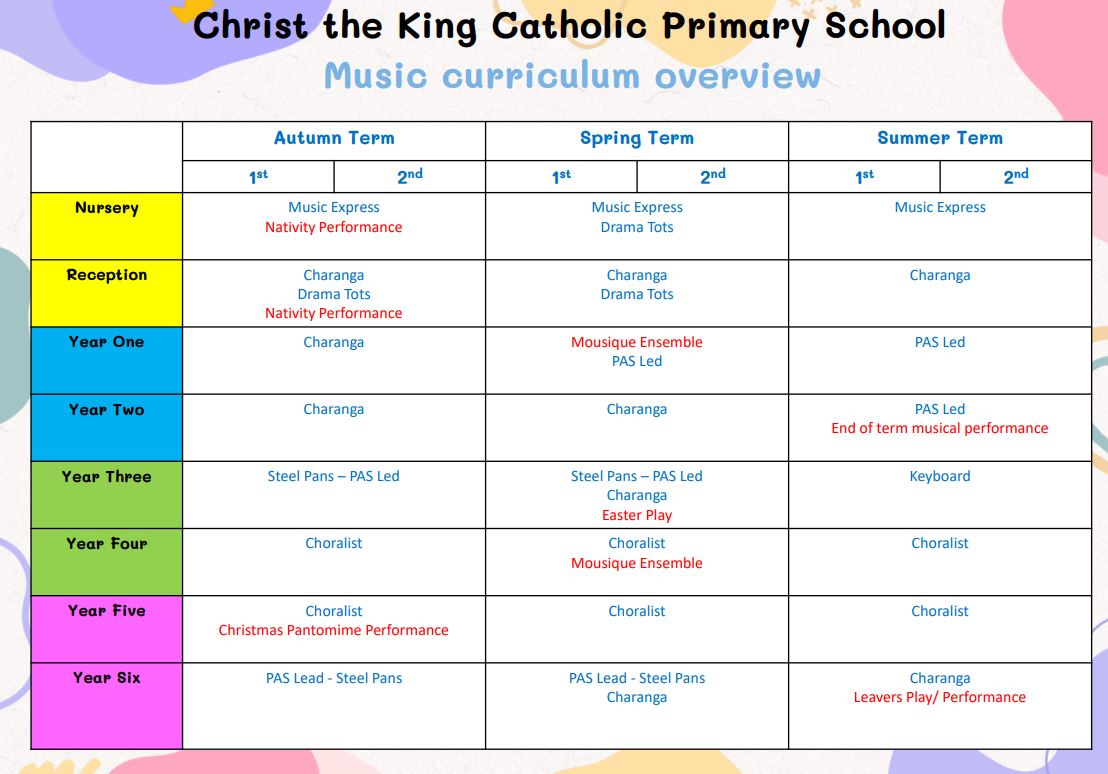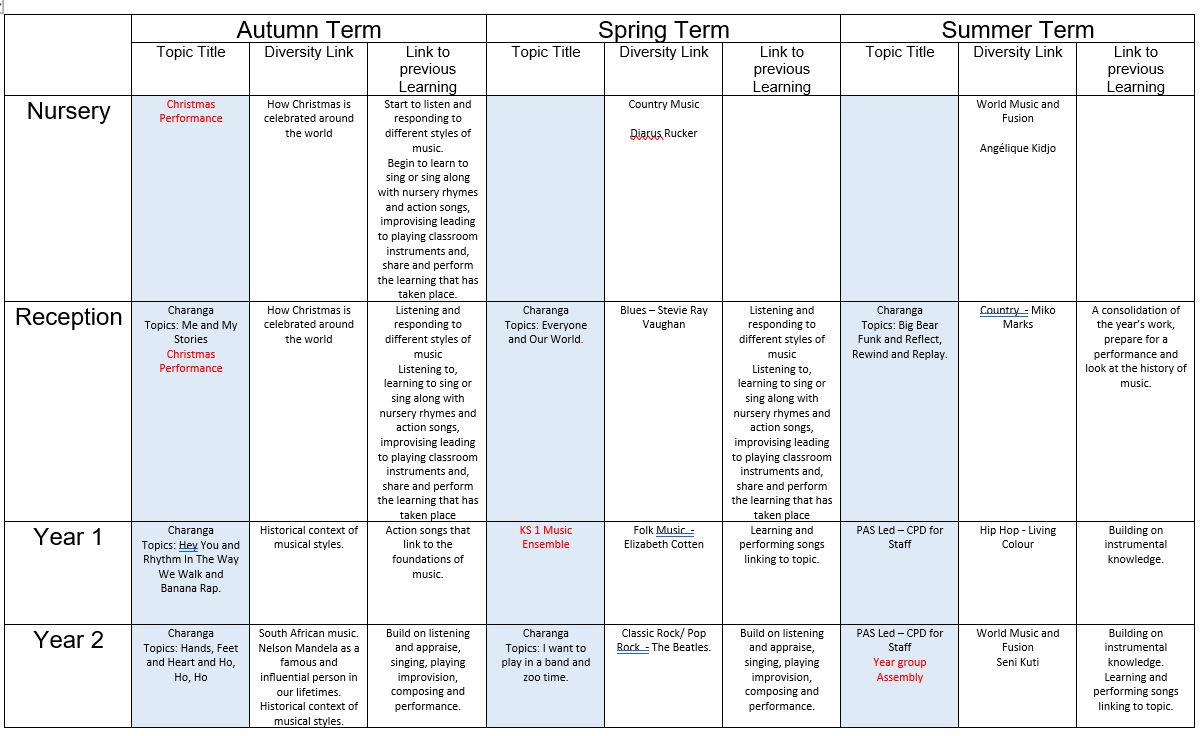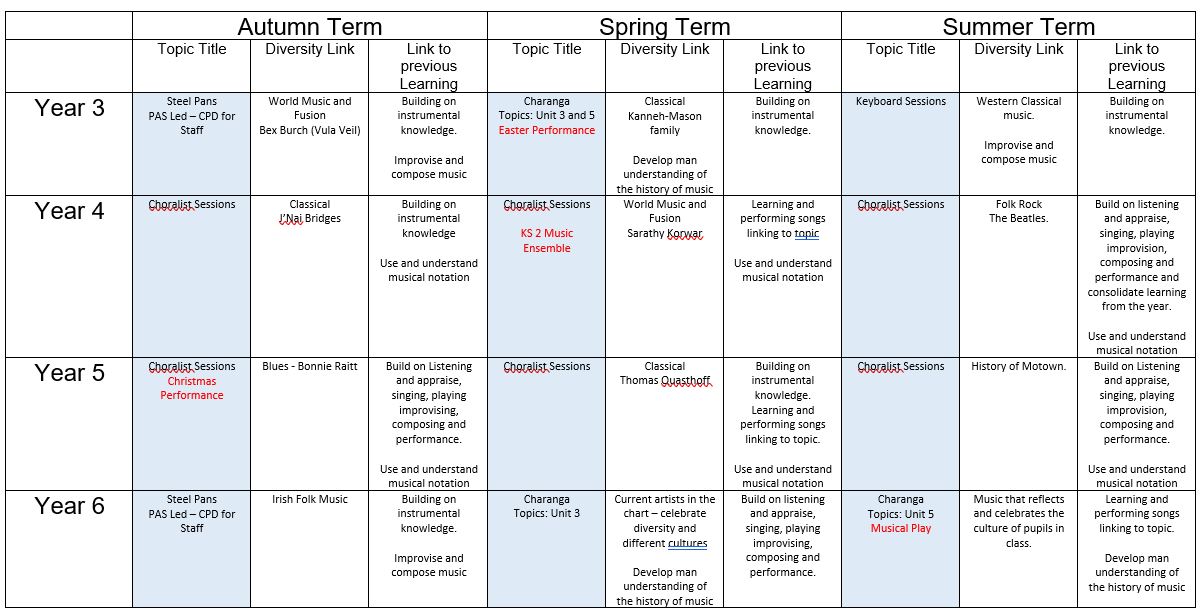Music is a big part of our curriculum at Christ the King, and we have many budding musicians!
Christ the King aims to foster a high-quality Music curriculum which inspires and engages all pupils.
We provide as many opportunities as possible for children to participate in a range of different Music lessons.
Our main aims are to enable children to listen and respond to different music styles, learn songs, play instruments and perform in front of others.
Children have the opportunity to take part in extra-curricular lessons. External specialist teachers teach these lessons.
Music Development PLan
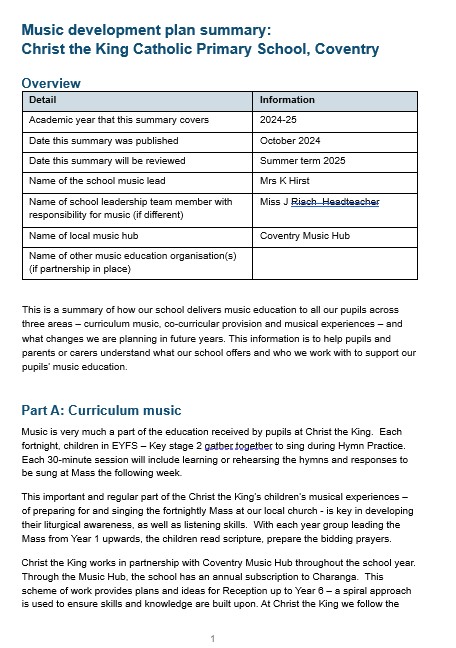
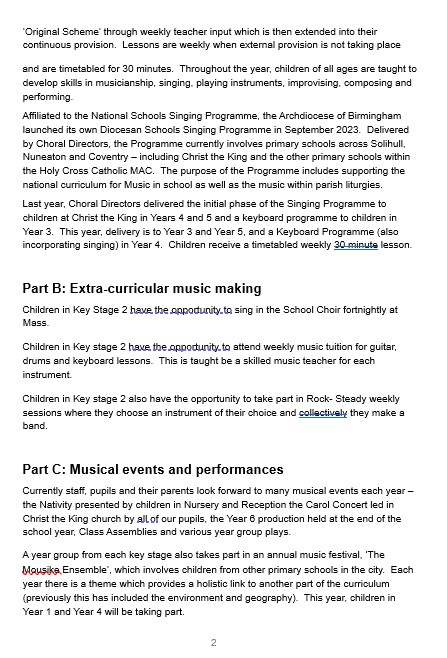
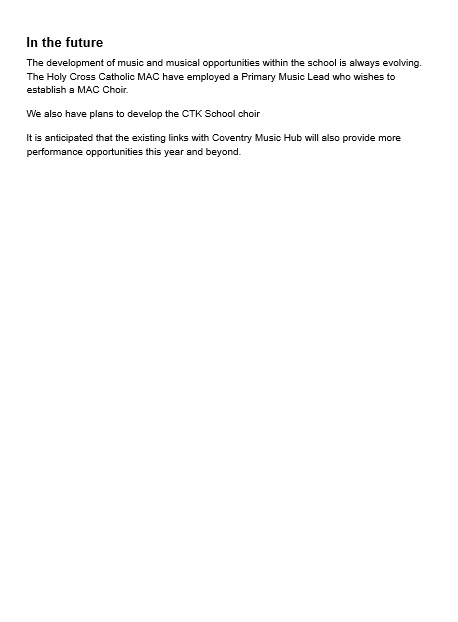
Music at ctk
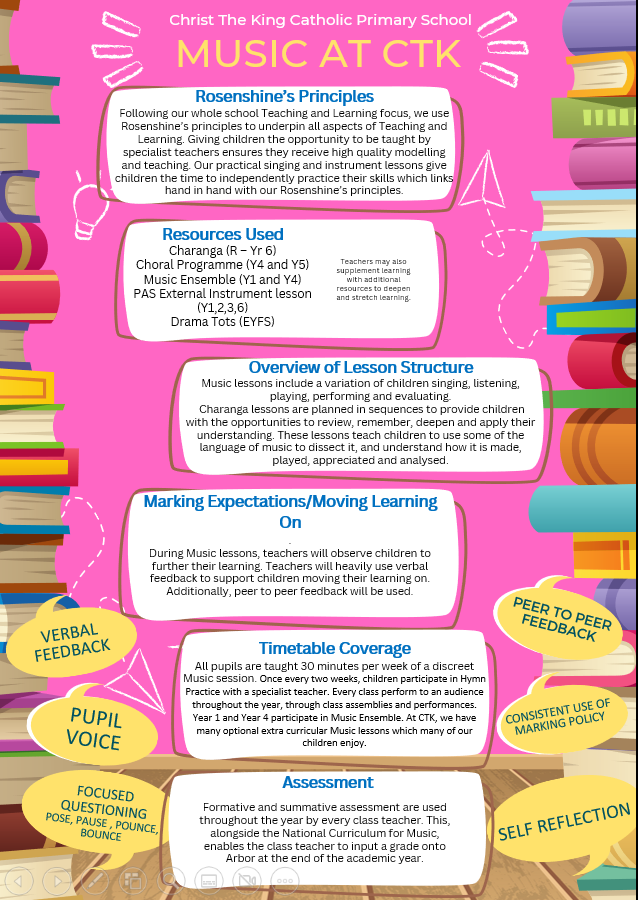
Overview of Curriculum
At Christ the King, we use the Charanga scheme of work to support the Music National Curriculum.
The scheme offers a COVID version to ensure activities are able to be carried out safely in the classroom. Children in Key Stage 2 also have the opportunity to participate in steelpan lessons throughout the year.
In addition to this, Oak National Academy resources are used to further Music education across the school.
Key Stage Two children have the opportunity to participate in extracurricular Music lessons led by external providers in guitar, drums and keyboard.
Intent Document
|
EYFS Expectation |
|
Aims The EYFS curriculum for music aims to ensure that all pupils: Expressive Arts and Design |
|
National Curriculum 2014 |
|
Aims The national curriculum for music aims to ensure that all pupils:
Attainment targets By the end of each key stage, pupils are expected to know, apply and understand the matters, skills and processes specified in the relevant programme of study. |
|
Key Stage One |
|
Pupils should be taught to:
|
|
Key Stage Two |
|
Pupils should be taught to sing and play musically with increasing confidence and control. They should develop an understanding of musical composition, organising and manipulating ideas within musical structures and reproducing sounds from aural memory. Pupils should be taught to:
|
|
Intent |
|
At Christ the King Catholic Primary School, children gain a firm understanding of what music is through listening, singing, playing, evaluating, analysing, and composing across a wide variety of historical periods, styles, traditions, and musical genres. We are committed to developing a curiosity for the subject, as well as an understanding and acceptance of the validity and importance of all types of music, and an unbiased respect for the role that music may wish to be expressed in any person’s life. We aim to provide children with the opportunity to progress to the next level of their creative excellence. |
|
Implementation |
|
The music curriculum ensures children sing, listen, play, perform and evaluate. This is embedded in classroom activities as well as weekly hymn practices, various concerts and performances and the learning of instruments which are led by qualified musicians. Through the musical program Charanga, teachers are able to produce inclusive lessons for all children to access the musical curriculum in a fun and engaging way, further promoting a love of learning. Teachers deliver music following the Charanga programme, designed specifically for the teaching of music in primary schools. Charanga lessons are planned in sequences to provide children with the opportunities to review, remember, deepen and apply their understanding. The elements of music are taught in classroom lessons so that children are able to use some of the language of music to dissect it, and understand how it is made, played, appreciated and analysed. In the classroom children learn how to play the recorder and a variety of percussion instruments. Playing various instruments enables children to use a range of methods to create notes, as well as how to read basic music notation. They also learn how to compose, focusing on different dimensions of music, which in turn feeds their understanding when listening, playing, or analysing music. Composing or performing using body percussion and vocal sounds is also part of the curriculum, which develops the understanding of musical elements without the added complexity of an instrument. |
|
Impact |
|
Music enables children to develop an understanding of culture and history, both in relation to children individually, as well as ethnicities from across the world. Children are able to enjoy music in as many ways as they choose – either as a listener, creator or performer. Children have the opportunity to discuss and share their own thoughts, opinions and ideas, acknowledging and respecting that these may vary and that this is positive. They can dissect music and comprehend its parts. They can sing and feel a pulse. At Christ the King Catholic Primary School children are provided with opportunities beyond the National Curriculum to further develop their understanding. These include having visitors with a musical talent, visiting concerts, theatre trips and school productions. External interests and talents are also encouraged and showcased in class and assembly, ensuring that everyone is challenged regardless of previous musical experience. Children have an understanding of how to further develop skills less known to them, should they ever develop an interest in their lives. |
Progression of Skills
Progression of Skills
Key Stage 1:
- use their voices expressively and creatively by singing songs and speaking chants and rhymes
- play tuned and untuned instruments musically
- listen with concentration and understanding to a range of high-quality live and recorded music
- experiment with, create, select and combine sounds using the inter-related dimensions of music
Key Stage 2:
- play and perform in solo and ensemble contexts, using their voices and playing musical instruments with increasing accuracy, fluency, control and expression
- improvise and compose music for a range of purposes using the inter-related dimensions of music
- listen with attention to detail and recall sounds with increasing aural memory
- use and understand staff and other musical notations
- appreciate and understand a wide range of high-quality live and recorded music drawn from different traditions and from great composers and musicians
- develop an understanding of the history of music


